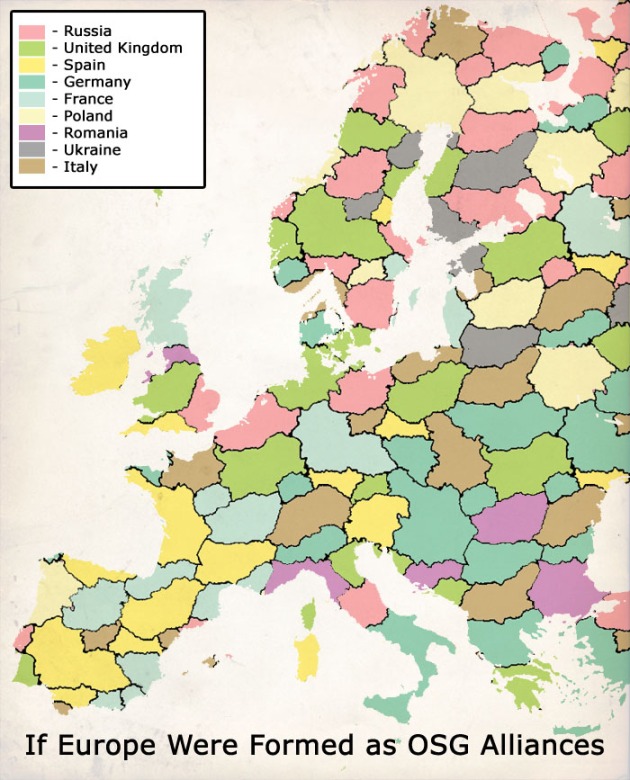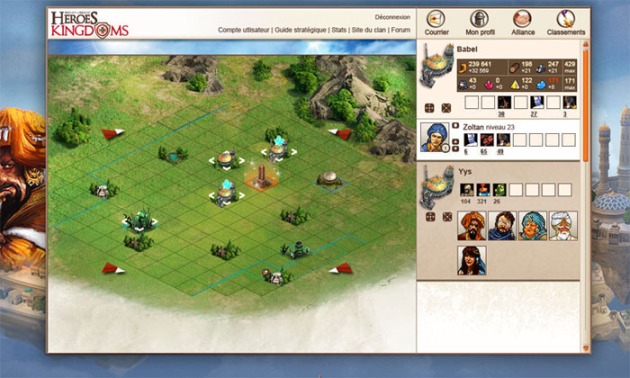Zones of Control
June 3, 2010 Leave a comment
A reader pointed me to this forum thread which has a lot of information about Might and Magic Heroes Kingdoms. I was especially interested in the concept of “Control Zones”.
It always seemed odd to me that OSG Alliances are formed with littel regard to geography. Parts of your alliance could be scattered across the world, completely surrounded by other alliances. It prompted me to make this:

Heroes Kingdoms addresses this though with the concept of a Control Zone:
“Each city projects a control zone. If you play alone, it represents your influence area; if you join alliance, it’s merged with the other members’ zones…
– It is impossible for a non-alliance member to build in this control area.
– You can travel over your alliance territory without stops.
– When you siege an opponent’s city, each side of your (or your alliance) control zone in contact with his city reduces the siege duration by 20%.”
This seems a lot like Cultural Influence from civilization and makes it far more advantageous for alliances to be contiguous, and provides a lot of opportunity for strategic decisions. For example, it could actually matter what side you attack from! In most OSG’s any of your cities could be attacked at any time, but it looks like in this game if you have cities in the center of your alliance’s territory they could be relatively safe (or at least you’d have a lot more time to notice an attack) and so you can focus on building up a strong defensive line around your alliances’ border, just like real warfare. It also makes it easier to see how each alliance is doing overall.
TsuChi on the forum put together this cool map that shows how the beta has been progressing. It lookslike purple was cut in half and then destroyed!
Cheers,
Oliver



